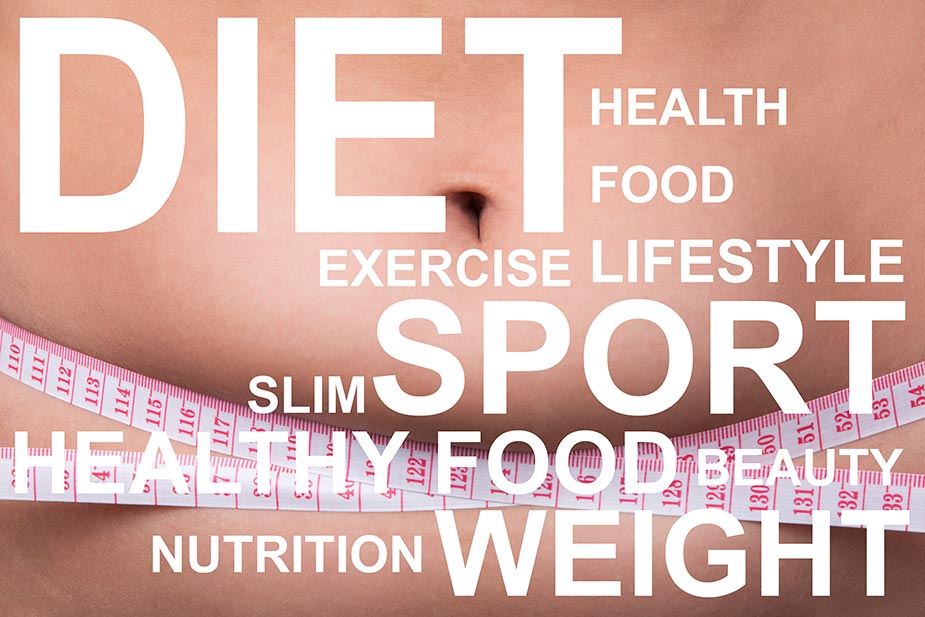The Quest for the Ultimate Weight Loss and Health Diet: Cutting Through the Hype
Navigating the World of Diet Trends
In the ever-growing world of diet trends and fads, it’s easy to feel overwhelmed by the sheer number of weight loss programs claiming to be the magic solution for shedding those extra pounds and achieving optimal health. From low-carb to high-protein, Paleo to Keto, plant-based to intermittent fasting, each diet comes with its own set of rules, promises, and sometimes, restrictions. But how do we navigate this maze of diet plans and determine which one is truly the best for our personal needs?
The key to success lies in finding a diet that not only delivers weight loss results but also supports long-term health and well-being. After all, a diet that’s impossible to sustain or that compromises your health is hardly worth pursuing. In this article, we’ll explore the nutritional foundations of a successful diet, examine the scientific evidence behind some of the most popular eating plans, and provide essential tips for choosing the diet that’s best suited to your individual goals and lifestyle. Get ready to embark on your journey towards a healthier, happier you!
The Building Blocks of the Best Diet for Weight Loss: Calories, Macronutrients, and Micronutrients
Understanding Caloric Deficit and Weight Loss
Before diving into the world of popular diets, it’s essential to understand the nutritional fundamentals that underpin any successful weight loss and health-promoting eating plan.
First and foremost, weight loss requires a caloric deficit, which means consuming fewer calories than your body needs to maintain its current weight. By doing so, you’ll encourage your body to tap into its stored energy, primarily in the form of fat, to make up for the difference. However, it’s important to strike a balance – reducing your caloric intake too drastically can lead to muscle loss and a sluggish metabolism, making it harder to lose weight in the long run.
The Role of Macronutrients: Proteins, Fats, and Carbohydrates
Next, let’s talk about macronutrients – the proteins, fats, and carbohydrates that supply our bodies with energy and are crucial for proper functioning. Each of these macronutrients plays a unique role in our overall health, and striking the right balance between them is essential for a well-rounded diet:
- Proteins are the building blocks of our muscles, skin, and other tissues, and they also play a crucial role in hormone production and immune function. Incorporating high-quality protein sources such as lean meats, fish, eggs, and plant-based options like legumes and tofu can help support muscle growth, repair, and overall health.
- Fats are vital for energy storage, brain function, and the absorption of fat-soluble vitamins. Prioritizing healthy fats found in foods like avocados, nuts, seeds, and olive oil can promote heart health and support overall well-being.
- Carbohydrates provide our bodies with quick energy and are the primary fuel source for our brains. Emphasizing complex carbs from whole grains, fruits, and vegetables can help keep you energized and feeling satisfied throughout the day.
Don’t Forget About Micronutrients
Lastly, don’t forget about micronutrients – the vitamins and minerals that are required in smaller amounts but are just as essential for maintaining good health. A well-balanced diet that includes a variety of colorful fruits, vegetables, whole grains, and lean protein sources will help ensure you’re getting all the micronutrients your body needs to thrive.
By keeping these nutritional principles in mind, you’ll be well-equipped to evaluate and choose a diet plan that not only supports weight loss but also fosters long-term health and vitality.
Science-Backed Diets for Weight Loss and Health: The Mediterranean, DASH, and Flexitarian Plans
The Mediterranean Diet: A Heart-Healthy and Nutrient-Dense Option for Weight Loss
When it comes to choosing a diet that’s both effective for weight loss and beneficial for overall health, it’s wise to turn to those that have stood the test of time and are backed by scientific research. Let’s take a closer look at three such diets – the Mediterranean, DASH, and Flexitarian plans – and explore why they’ve earned their place in the pantheon of healthy eating.
Inspired by the traditional eating patterns of countries bordering the Mediterranean Sea, the Mediterranean diet is lauded for its heart-healthy benefits and potential for weight loss. Rich in fruits, vegetables, whole grains, lean proteins, and healthy fats (primarily from olive oil and nuts), the Mediterranean diet emphasizes wholesome, minimally processed foods that are naturally nutrient-dense. Research has consistently shown that adopting a Mediterranean-style diet can improve heart health, reduce inflammation, and promote weight loss, making it an excellent option for those seeking a sustainable, health-promoting eating plan.
The DASH Diet: Combating Hypertension and Promoting Weight Loss
Developed to combat high blood pressure (hypertension), the DASH (Dietary Approaches to Stop Hypertension) diet has also proven to be effective for weight loss and overall health. The DASH diet focuses on consuming a wide variety of nutrient-dense foods, such as fruits, vegetables, whole grains, lean proteins, and low-fat dairy products while limiting sodium, saturated fats, and added sugars. Its emphasis on whole, unprocessed foods and balanced nutrition makes it a solid choice for individuals looking to improve their health and shed excess weight.
The Flexitarian Diet: A Flexible Approach to Plant-Based Eating
As the name suggests, the Flexitarian diet is all about flexibility. This plant-based eating plan encourages the consumption of fruits, vegetables, whole grains, legumes, and plant-based proteins, while still allowing for moderate intake of animal products, such as meat, poultry, and fish. The idea behind the Flexitarian diet is to provide the benefits of a vegetarian or vegan diet, such as weight loss, improved heart health, and reduced inflammation, without completely eliminating animal products. This flexibility makes it an appealing option for those looking to transition to a more plant-based lifestyle without feeling overly restricted.
Each of these science-backed diets has its own unique advantages and can be tailored to suit individual preferences and health goals. By focusing on nutrient-dense, minimally processed foods and striking a balance between macronutrients, the Mediterranean, DASH, and Flexitarian diets offer a sustainable path to weight loss and long-term health.
Selecting the Best Diet for You: Key Principles to Consider
Sustainability: Ensuring Long-Term Success
When deciding on the best diet to support your weight loss and health goals, it’s essential to keep in mind several key principles that can help guide your choice. Here are three factors to consider when evaluating different diets:
The most effective diet is one that you can stick to in the long run. A sustainable diet is enjoyable, nourishing, and fits seamlessly into your lifestyle without causing undue stress or feelings of deprivation. It’s crucial to choose a diet plan that you can maintain over time, as this will increase your chances of long-term success and help you develop healthy eating habits that last.
Adaptability: Customizing Your Diet Plan
Your diet should be flexible enough to adapt to different life circumstances, preferences, and even changes in your taste buds. The best diet is one that allows for customization, taking into account your unique needs, goals, and preferences. Consider how well a diet plan can be tailored to suit your individual requirements, such as accommodating food allergies, personal beliefs, or cultural practices. A diet that is adaptable will be easier to stick to and more likely to yield lasting results.
Health Benefits: Beyond Weight Loss
Lastly, the ideal diet should provide meaningful health benefits beyond weight loss. Look for a diet plan that promotes overall health and helps prevent chronic diseases, such as heart disease, diabetes, and certain types of cancer. A well-rounded diet that emphasizes nutrient-dense, minimally processed foods will not only help you shed unwanted pounds but also support long-term health and well-being.
By keeping these principles in mind, you can make an informed decision about the best diet plan for your weight loss and health journey. Remember, the most effective diet is one that you enjoy, can maintain long-term, and provides lasting health benefits.
Successfully Following a Diet: Tips and Strategies
Setting Realistic Goals and Tracking Progress
Embarking on a diet journey can be challenging, but with the right mindset and support, you can achieve your weight loss and health goals. Here are some tips and strategies to help you successfully follow your chosen diet plan:
Begin by setting achievable, specific, and measurable goals for your weight loss and health journey. Break your overall goal into smaller, short-term milestones that can be easily tracked and celebrated. Keep a food diary or use a mobile app to monitor your daily intake, exercise, and progress towards your goals. Regularly assessing your progress can help you stay motivated and make necessary adjustments to your diet plan.
Finding Support
Having a strong support network can make a significant difference in your success on a diet plan. Reach out to family members, friends, or coworkers who can encourage you, hold you accountable, and celebrate your achievements. You can also consider joining a weight loss group or seeking guidance from a nutritionist, dietitian, or healthcare professional who can provide expert advice and support.
Overcoming Obstacles and Setbacks
It’s essential to recognize that setbacks are a natural part of any weight loss journey. Rather than becoming discouraged, use these challenges as opportunities to learn and grow. Develop strategies for overcoming common obstacles, such as emotional eating, dining out, or cravings. Practice self-compassion and remind yourself that progress is not always linear. Remember, the key to long-term success is resilience and the ability to bounce back from setbacks.
By incorporating these tips and strategies into your diet plan, you can set yourself up for success and make lasting changes to your eating habits and overall health. Stay focused on your goals, seek support, and remain committed to overcoming challenges, and you’ll be well on your way to achieving your weight loss and health objectives.
In Conclusion: Finding the Best Diet for Your Health, Weight Loss, and Sustainability
Choosing a Diet that Supports Your Individual Needs and Goals
As we’ve explored throughout this article, the key to successful weight loss and improved health lies in finding a diet plan that supports your individual needs, goals, and lifestyle. It’s crucial to choose a diet that not only promotes weight loss but also contributes to long-term health and can be sustained over time.
Scientifically-Backed Diets as Starting Points
We’ve discussed various scientifically-backed diets, such as the Mediterranean Diet, DASH Diet, and Flexitarian Diet, which have been proven effective for both weight loss and health improvement. These diets can serve as excellent starting points for those seeking to make meaningful changes in their eating habits.
Finding Your Personal Best Diet for Weight Loss and Health
In the end, the best diet for you will be one that you can adhere to, enjoy, and maintain over time. It should provide adequate nutrition, promote overall health, and align with your personal values and preferences. We encourage you to research different options, consult with healthcare professionals if necessary, and ultimately choose a diet plan that best suits your individual needs and goals.
Embracing Success Principles for Weight Loss
Remember, a successful weight loss journey involves setting realistic goals, seeking support, and remaining committed to overcoming obstacles along the way. By embracing these principles, you’ll be well on your way to a healthier, happier, and more fulfilling life.
. . .
“Eat food, not too much, mostly plants.” – Michael Pollan
. . .




